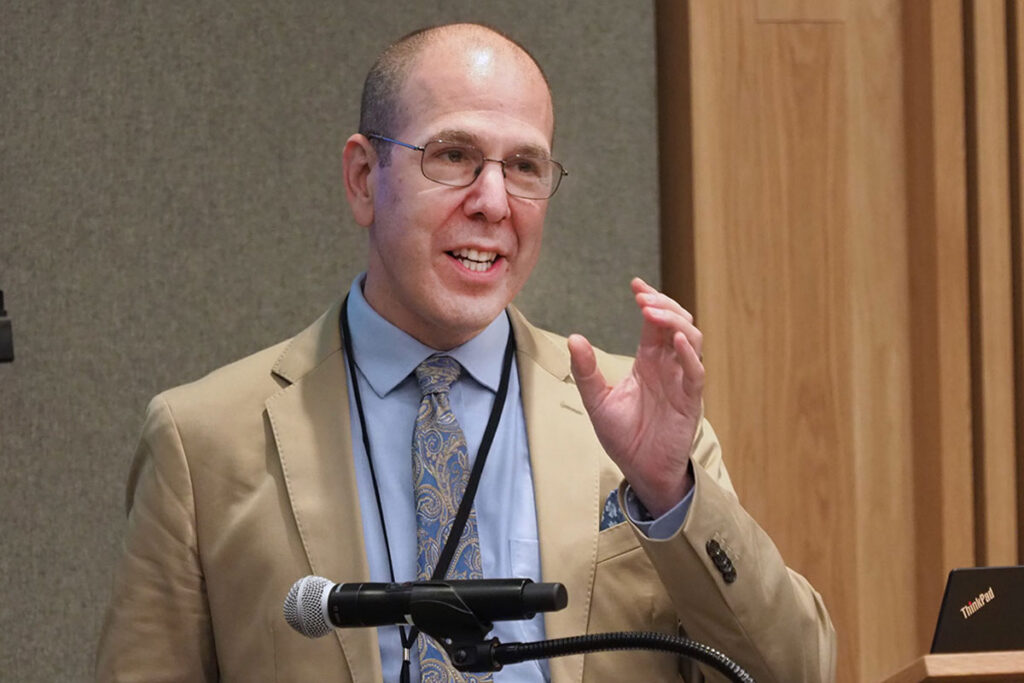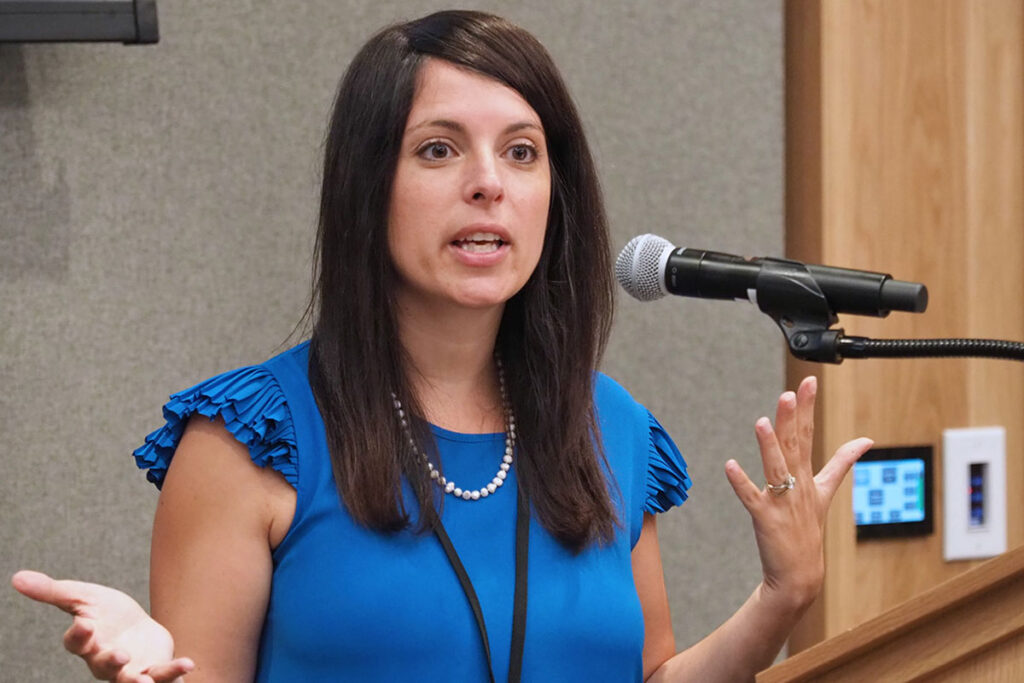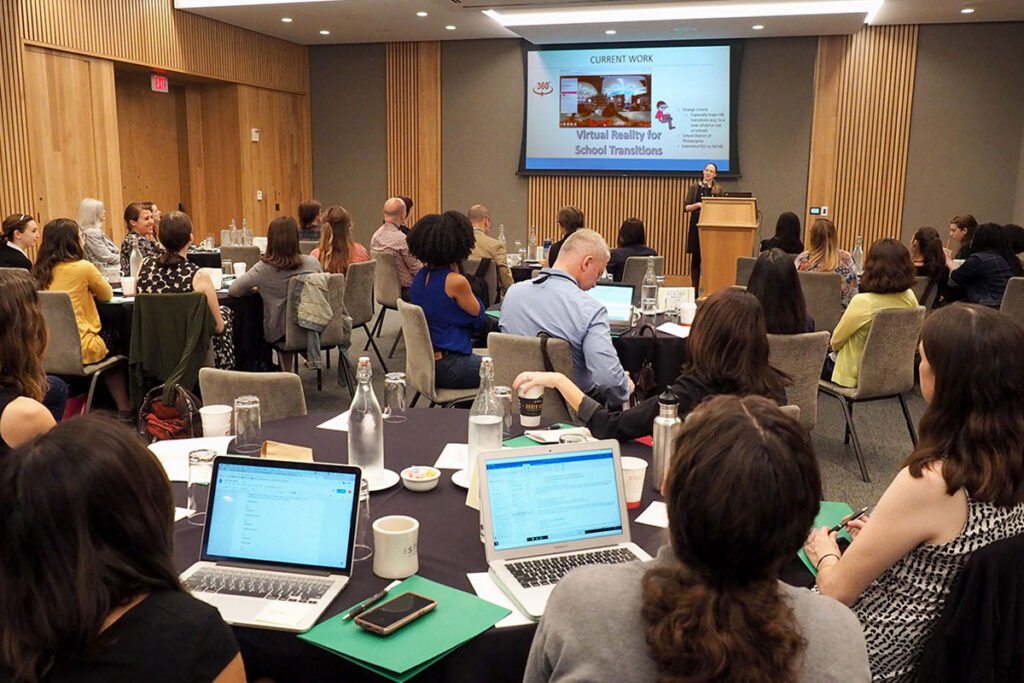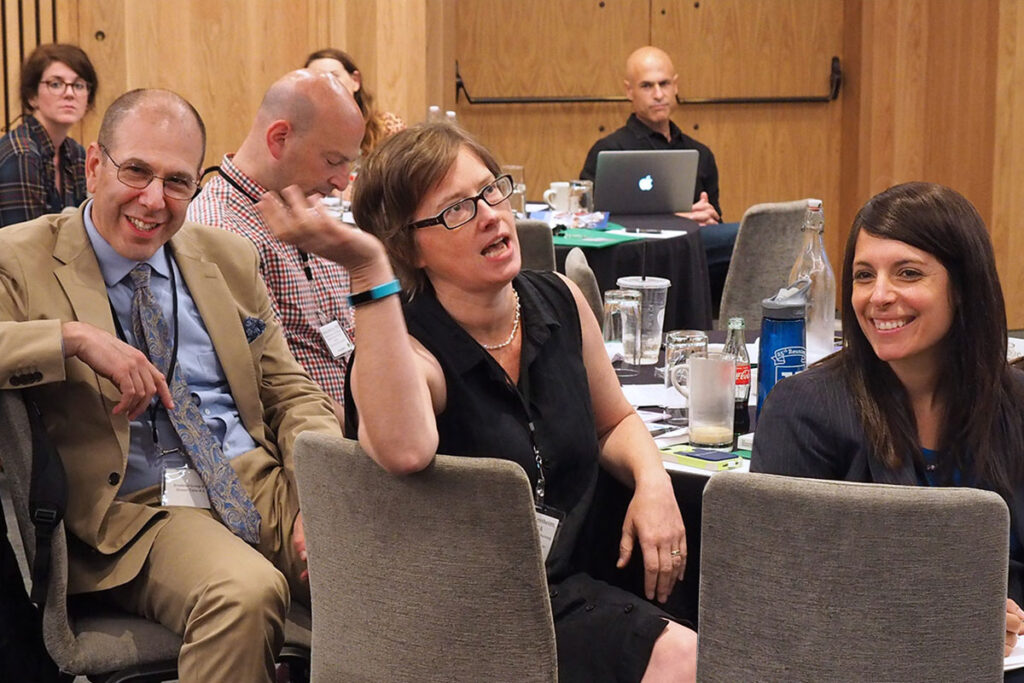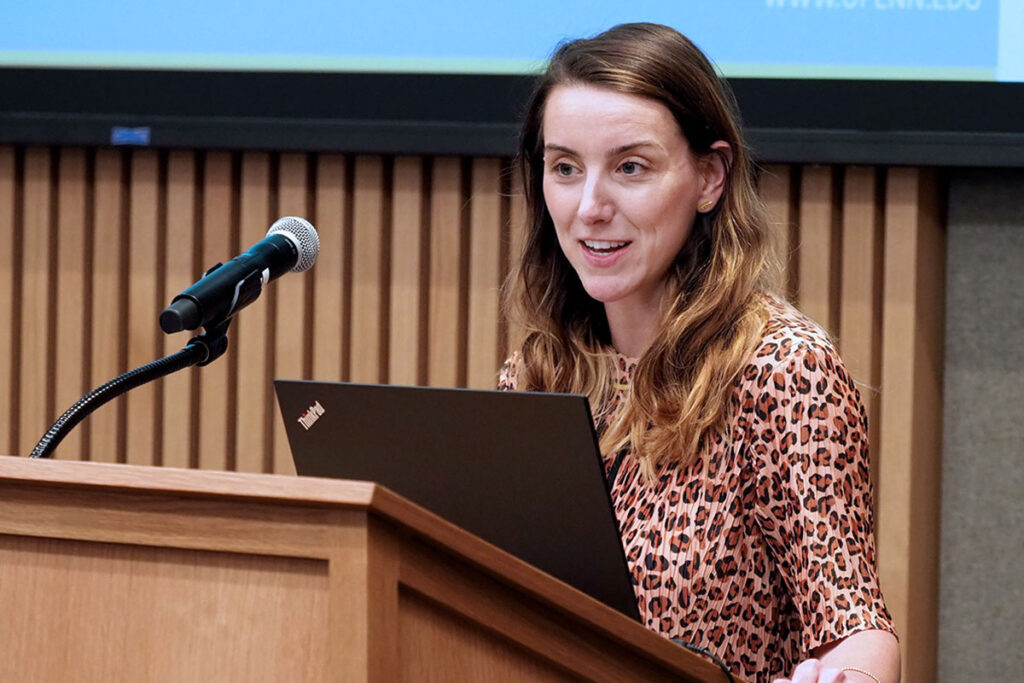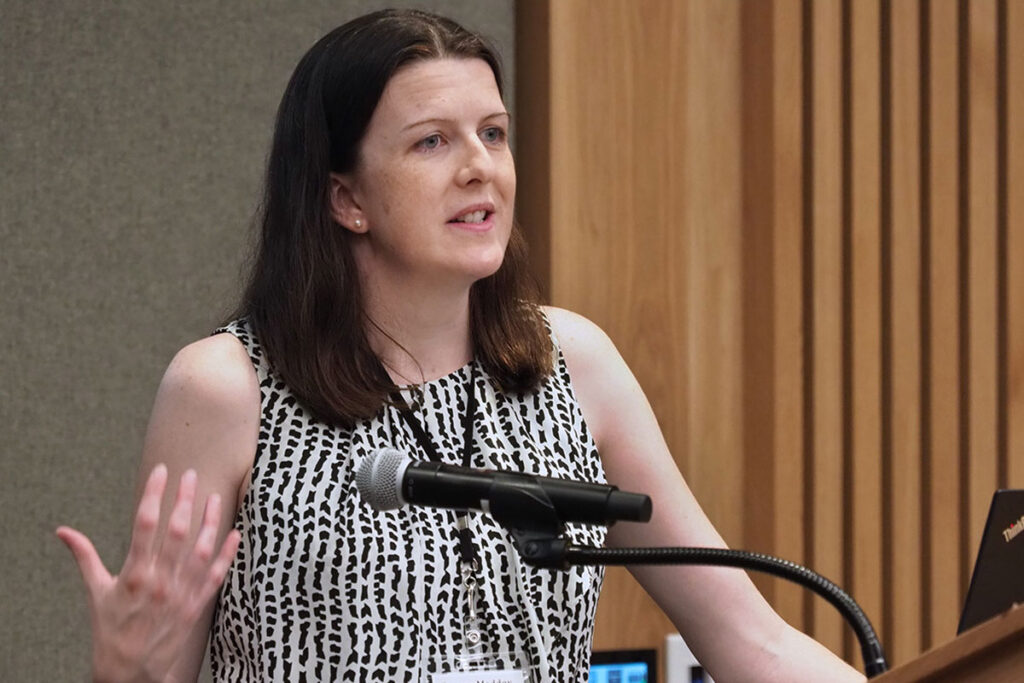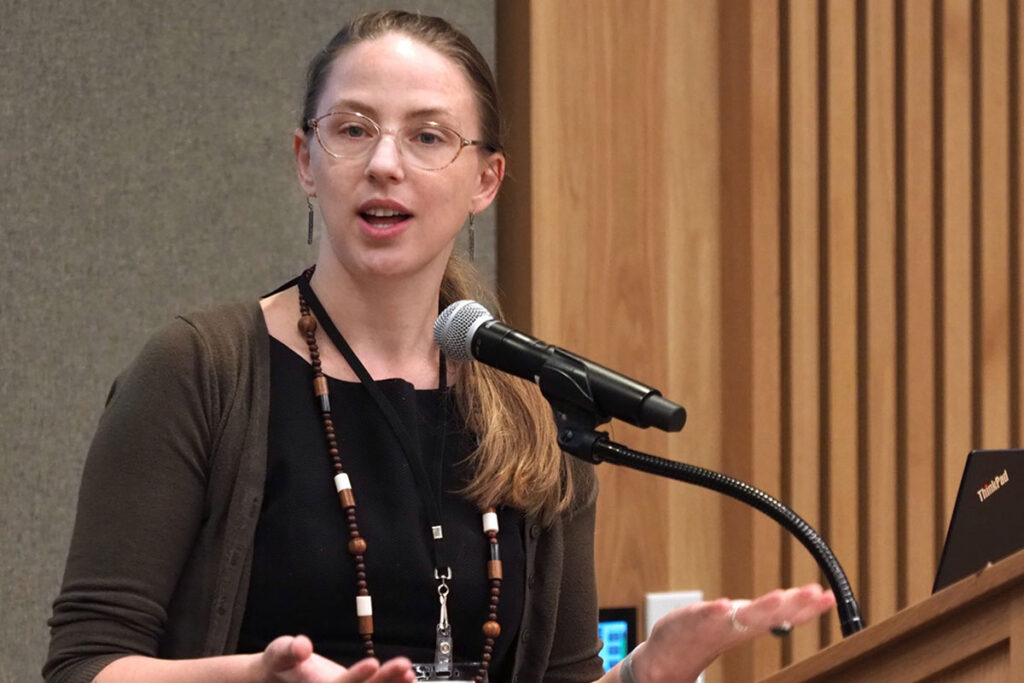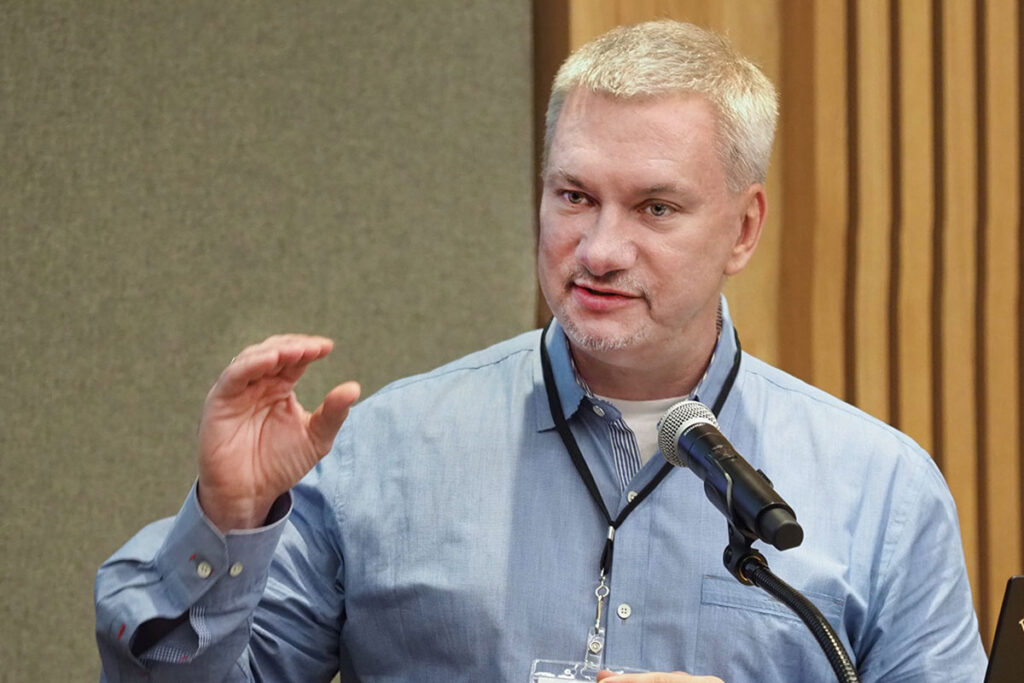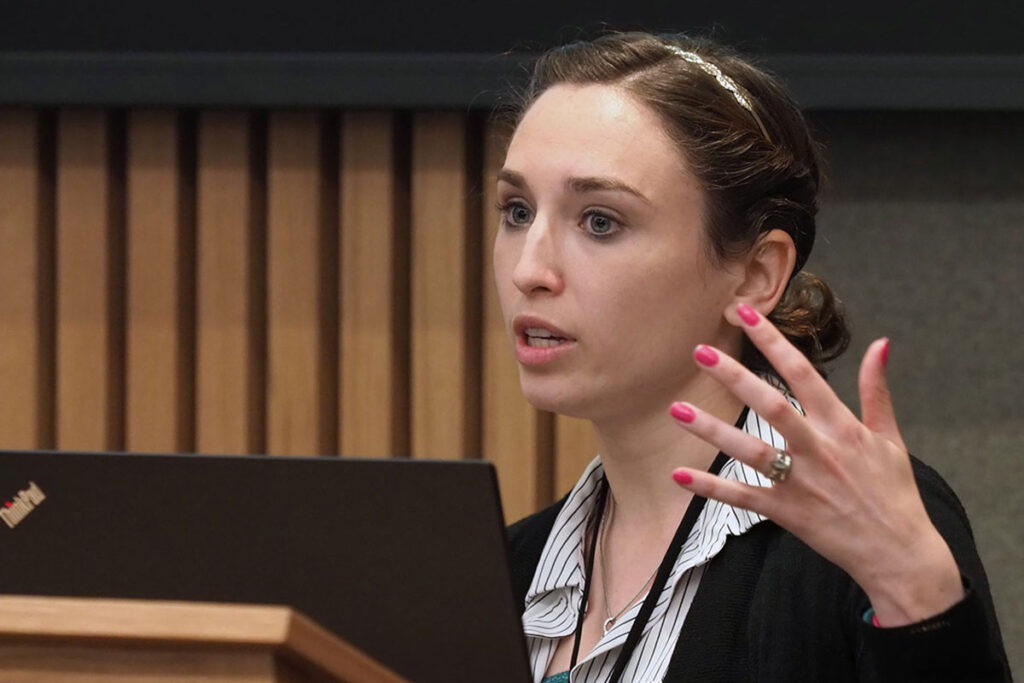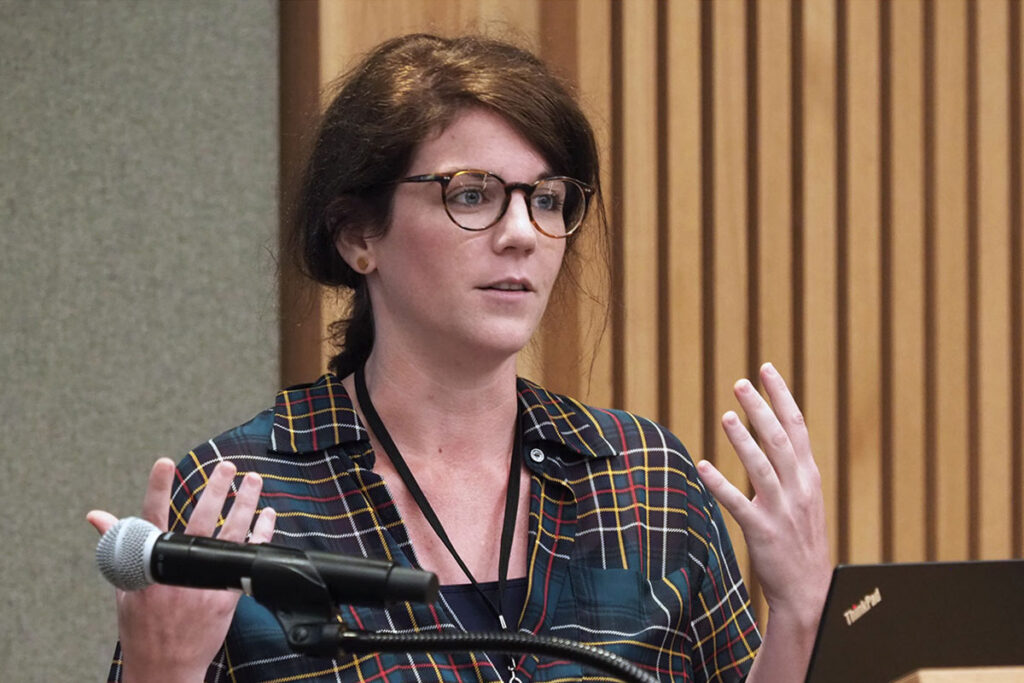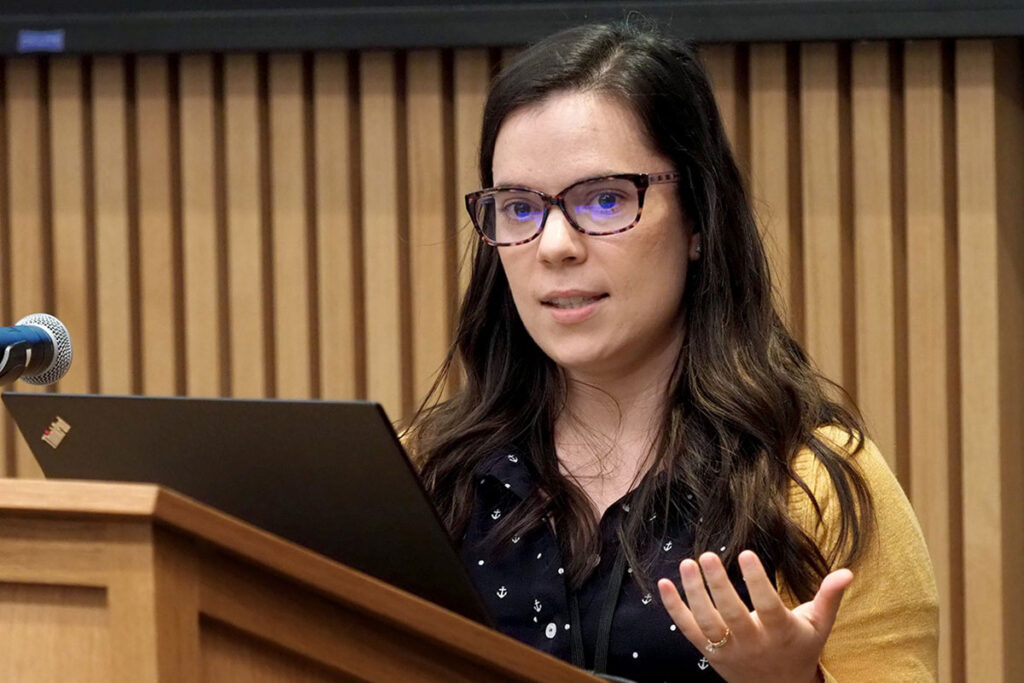News
Engaging Implementation Science, Behavioral Economics and Mental Health Challenges With Great Alacrity
New Penn Research Initiative Assesses Its First Year and Lays Strategies for Next Three

As it ended the first year of its four-year National Institute of Mental Health (NIMH)-funded study of how behavioral economics principles might be applied to mental health services, the University of Pennsylvania ALACRITY project convened a two-day retreat to review its progress and focus on its ongoing challenges. Held in the conference center of the Study at University City (above), the gathering brought together mental health professionals from the City of Philadelphia and its community mental health centers along with faculty and trainees from the two Penn Centers collaboratively administering the project: the Center for Mental Health Policy & Services Research (CMHPSR) and the Center for Health Incentives & Behavioral Economics (CHIBE).
ALACRITY is an acronym that stands for “Advanced Laboratories for Accelerating the Reach and Impact of Treatments for Youth and Adults with Mental Illness.” Project goals include the identification and testing of potentially new interventions or “nudges” to improve patient care as well as to increase the implementation of evidence-based Cognitive Behavioral Therapy (CBT) methods among mental health clinicians throughout the region’s community mental health centers. Most of those centers still use older treatment methods that are not evidence-based.
114,000 Community Mental Health Patients
The need in this area is great. According to Suet Lim, PhD, Director of Research, Department of Behavioral Health and Intellectual disAbilities (DBHIDS), there are more than 710,000 Medicaid-eligible adults and children in Philadelphia and 114,000 — or 16% — of them receive mental health services annually. The overall number of Philadelphia Medicaid recipients who actually need mental health services but, for various reasons, are not getting them, is not known. However, a study of 6,500 adult Medicaid recipients elsewhere in the country published in the journal Psychiatric Services found that “39% had a psychiatric diagnosis” and 67% of those had “received no specialty mental health care in the previous year.”
In opening the first-day session, CMHPSR Director David Mandell, ScD (above, left), detailed the challenge frankly. “If you think about frontiers in health, you can consider mental health to be the wild west,” said the Penn Medicine Professor of Psychiatry and Senior Fellow at the Leonard Davis Institute of Health Economics (LDI). “We have few biomarkers, few known etiologies and imperfect measures for our disorders. We have imperfect treatments, even under ideal circumstances for many of these disorders. Medications can be effective for some, but often the most efficacious interventions comprise complex psycho-social therapies that can be difficult to implement the way that they were designed. And for this and many other reasons, these treatments often do not make their way into community care because of the intervention complexity, the poor fit between the intervention and setting or population, or the poorly aligned incentives and supports or lack of training and supervision for doing the intervention.”
At the same time, Mandell pointed out, “we live in a city where the municipal Department of Behavioral Health is leading innovative, systemwide initiatives to make evidence-based practice available to our most vulnerable citizens in need. The work of that Department is doing and its 30-year relationship with the University of Pennsylvania is the bedrock on which this ALACRITY project stands.” Mandell and Penn colleagues Rinad Beidas and Kevin Volpp are the principal investigators on the project.
Above, right, Beidas, PhD and CMHPSR Implementation Research Director said ALACRITY’s work is aimed at accelerating the pace at which more effective treatments for psychiatric disorders — such as evidence-based Cognitive Behavioral Therapy (CBT) methods — are deployed in community mental health programs. “CBT is a brief, time-limited therapeutic approach that helps people learn new ways to approach their thoughts, feelings and behaviors,” said the Penn Medicine Assistant Professor of Psychiatry and LDI Senior Fellow. “Very pragmatically, CBT is about changing your experience today in contrast to the historical concept of therapy that has you on a couch for years at a time talking about what your mother did to you.”
The two-day event (above, left) brought together scientists from behavioral economics, implementation science, economics, clinical care and mental health services research. Above, right, Penn Nursing Associate Professor and LDI Senior Fellow Alison Buttenheim, PhD, MBA (center, black blouse), co-directs the ALACRITY project’s Methods Core. She spoke of the dozens of ideas collected from community mental health professionals about how to improve care or nudge practitioners toward greater use of evidence-based practices. “We have a team combing through the database of ideas to identify behavioral insights that might inform how we design interventions to increase evidence-based take-up,” Buttenheim said. Others in the photo (l to r) Molly Candon, PhD, LDI Associate and Postdoctoral Fellow; Mandell; Steven Marcus, PhD, Research Associate Professor at Penn’s School of Social Policy & Practice and LDI Senior Fellow; Buttenheim, Scott Halpern, MD, PhD, Penn Medicine Professor and LDI Senior Fellow, and Beidas.
During an open discussion period, Roy Rosin, MBA (above, left), Chief Innovation Officer at the Penn Medicine Center for Health Care Innovation and LDI Senior Fellow, asks a question. Above, right are Mandell and Kevin Volpp, MD, PhD, Professor of Medical Ethics and Health Policy, Medicine and Health Care Management, and Director of CHIBE, and LDI Senior Fellow.
Rebecca Stewart, PhD (above, left), CMHPSR Research Associate and Project Director of ALACRITY’s MOTIVATE Group, emphasized that one of the research insights that led to the creation of ALACRITY was the “striking finding that despite incentives, clinicians report they did not feel rewarded for doing evidence-based practices and that the incentives in the system remain at the organization level (rather than at the individual clinician level).” Above, right, is Steven Marcus, PhD, who heads the ADAPT Group of the ALACRITY research project. He is conducting a randomized controlled trial to test incentives designed to improve antidepressant medication adherence among patients just starting those treatment regimens. He noted the tendency of many mental health patients to cease taking the drugs because they don’t fully understand that it takes about six weeks for those pharmaceuticals to become effective and ease their symptoms. He is a Research Associate Professor at Penn’s School of Social Policy & Practice and an LDI Senior Fellow.
Along with the work of faculty researchers on its three major research groups, the ALACRITY Retreat provided a spotlight for its corps of trainee researchers. Brenna Maddox, PhD (above, left), a CMHPSR Postdoctoral Fellow and LDI Associate Fellow is focused on identifying and implementing interventions to prevent autistic adolescents and adults from taking their own lives. A recent Lancet article reported “worryingly high rates of suicidality” among people with autism. Maddox notes there is very little in the research literature about the management of such risk. She also said there are not enough clinicians trained in the very specialized diagnosis and treatment methods required for autistic individuals’ co-occurring mental health problems such as stress, anxiety and depression. Above, right, Heather Nuske, PhD, a Postdoctoral Research Fellow at the Center for Mental Health Policy and Services Research (CMHPSR) is exploring how the latest digital monitoring and feed back technologies can be used for stress management interventions with autistic people. Many autistic patients have difficulty identifying their own emotions — an ability that is a standard part of stress management therapies in non-autistic persons.
In search of insights that could make them more comfortable and effective in providing one-on-one behavioral therapy with autistic school children, Postdoctoral CMHPSR Researcher and LDI Associate Fellow Viktor Lushin, MD, PhD, is investigating exactly what stresses clinicians most during the process of delivering such therapies. He hopes to identify and implement a strategy that can nudge providers past such stressors. Above, right, CMHPSR postdoctoral fellow Emily Becker Haimes, PhD, is working on a research project testing different ways of measuring clinicians’ fidelity to the CBT treatments they are delivering. She is shadowing community mental health clinicians in real-time as they treat their patients.
Molly Candon, PhD (above, left), is a CMHPSR Postdoctoral Fellow and LDI Associate Fellow focused on the effectiveness of autism insurance mandates, physician prescribing and diagnostic incentives. She spoke of her work studying off-label psychotropic prescribing. “Off-label prescribing gets a bad rap but it isn’t necessarily always bad,” she said. “There’s a gap between research and practice and because of that gap, very effective psychotropic treatments may not be utilized.” Above, right, CMHPSR Postdoctoral Fellow Brittany Rudd, PhD, is studying adolescents who access community mental health services through Family Court. One aspect of her work looks at the interventions ordered by the Family Court Domestic Relations branch to determine which result in evidence-based treatments and which do not.
